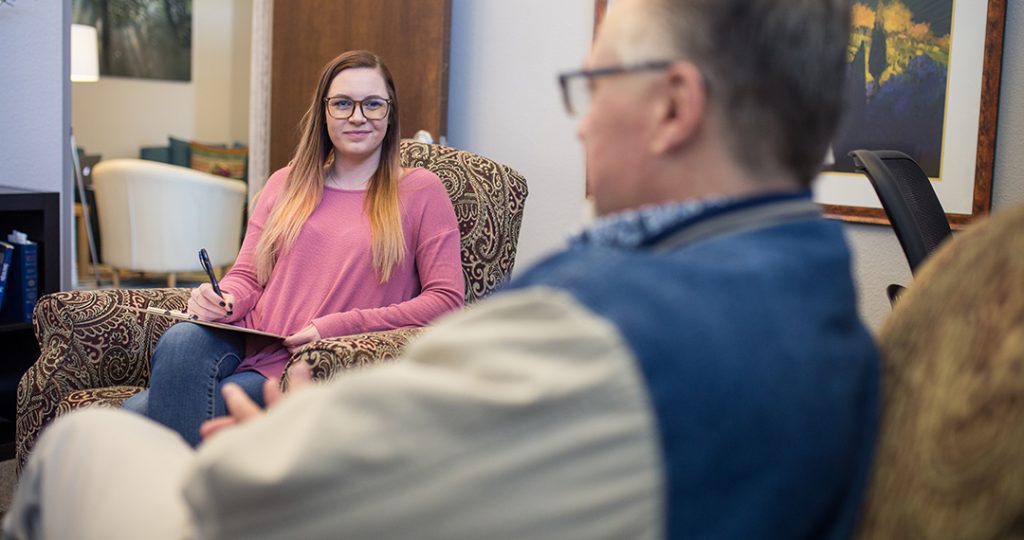
What could you do with a Master’s Degree in Counseling Psychology?
A career in counseling is one of the most rewarding careers available to professionals. Counselors have the opportunity to help others as they attempt to make change, improve themselves, or put the pieces of their lives back together. With a Master’s in Counseling Psychology, you can guide others as they try to reach their own personal goals.
With a Master’s degree in counseling, there is a variety of career options available. Looking at different career paths, degree holders can choose a specialty that best appeals to their abilities, and their desire to help others. Here we take a look at some of the career options for those with a Master’s in Counseling Psychology degree.
Marriage and Family Counselor
Marriage and family counselors help couples and families understand each other. Through marriage counseling, counselors help couples to understand each other better, learn more about each other, and find ways to better get along. In family therapy, counselors help families who are having difficulties to reconnect and heal. Family counseling can also help when children are having trouble, or when substance abuse is involved.
School and Career Counselor
School and career counselors help students prepare for the future by providing guidance for teens as they choose their academic studies and consider career paths. School counselors often get to know students so that they can provide useful guidance specific for their goals. A Master’s in Counseling Psychology degree provides for a foundation for helping students, but extra certification, depending on the state that you work in, may be required.
School counselors do more than direct career opportunities and watch the academic progress of students. School counselors are often required to be involved in other aspects of school life, such as mediating issues between students, and they may be required to provide some drug programs. Elementary school counselors may need to be certified and knowledgeable in childhood development, as they often help children with social and developmental issues, as well as mediate problems and help correct disruptive behavior.
Clinical Therapist
Clinical therapists work in a clinical setting, helping to counsel those with a variety of problems. Clinical therapists may work with groups or with individuals. In many cases, psychological problems are dealt with in a clinical therapy setting. A Master’s degree is helpful here especially, as clinical therapists work to counsel clients and patients in a way that can help them work through personal issues. Clinical therapists may also work with those who have problems with depression.
Mental Health Counselor
A Master’s degree in Counseling, coupled with some additional specialized training, can lead to a career in mental health counseling. Mental health counselors can provide a number of specialized services, including diagnosis of mental health issues, crisis management, psychotherapy, psychoeducation programs, and treatment planning. Mental health counselors may find employment in a variety of settings, from clinical to corporate to educational.
Rehabilitation Counselor
A rehabilitation counselor helps clients who have difficulties from birth, or from accident or illness, working with them to establish their own independence. Rehabilitation counselors may help those who have difficulties socially, vocationally and personally to learn to acquire the skills that allow them to live more independently. This can include providing skills training for a job, or for daily needs, such as balancing a checkbook. Rehabilitation counselors can also help individuals learn how to interact socially with others. Lastly, rehabilitation counselors may even help with physical rehabilitation, working with a physical therapist as a team.
Chemical Dependency Counselor
For those interested in helping people battle chemical dependency, you can use your Master’s in Counseling Psychology as a basis for further certification as a chemical dependency counselor. This specific certification, though, is often controlled by states, and additional training may also be necessary to become licensed as a chemical dependency counselor.
Once properly certified, chemical dependency counselors work with those with addictions to help them with their treatment. In some cases, chemical dependency counselors work with medical or clinical personnel, and may also create programs that involve pharmacological therapy.
For those with a Master’s degree in Counseling Psychology, the career opportunities are numerous. And there is no shortage of demand, either. According to the United States Bureau of Labor and Statistics, job growth for counselors is expected to grow at an astonishing 23% through the year 2026 (BLS 2017). Much faster than average growth, this demand for certified counselors reflects the genuine need our country has for these skilled mental health professionals.
If a Master’s degree in Counseling Psychology is the right choice for you, carefully consider William Jessup University for your educational training. Jessup is the first and only accredited, full-service Christian University in Northern California’s capital region. Jessup’s M.A. in Counseling Psychology is carefully designed to meet California state requirements for the Marriage and Family Therapy (MFT) and the Licensed Professional Counselor (LPC) licenses. The M.A.C.P. prepares students for the challenges of the mental health profession by applying current psychological theory, integrated with Biblical principles throughout the curriculum. Instructors are scholars and practitioners, offering both academic and practical guidance. Built on a cohort model, the program facilitates long-term relationships and supportive growth. To learn more about William Jessup University, and the Master’s in Counseling Psychology program, visit jessup.edu or contact an advisor at (855) WJU-GRAD.
